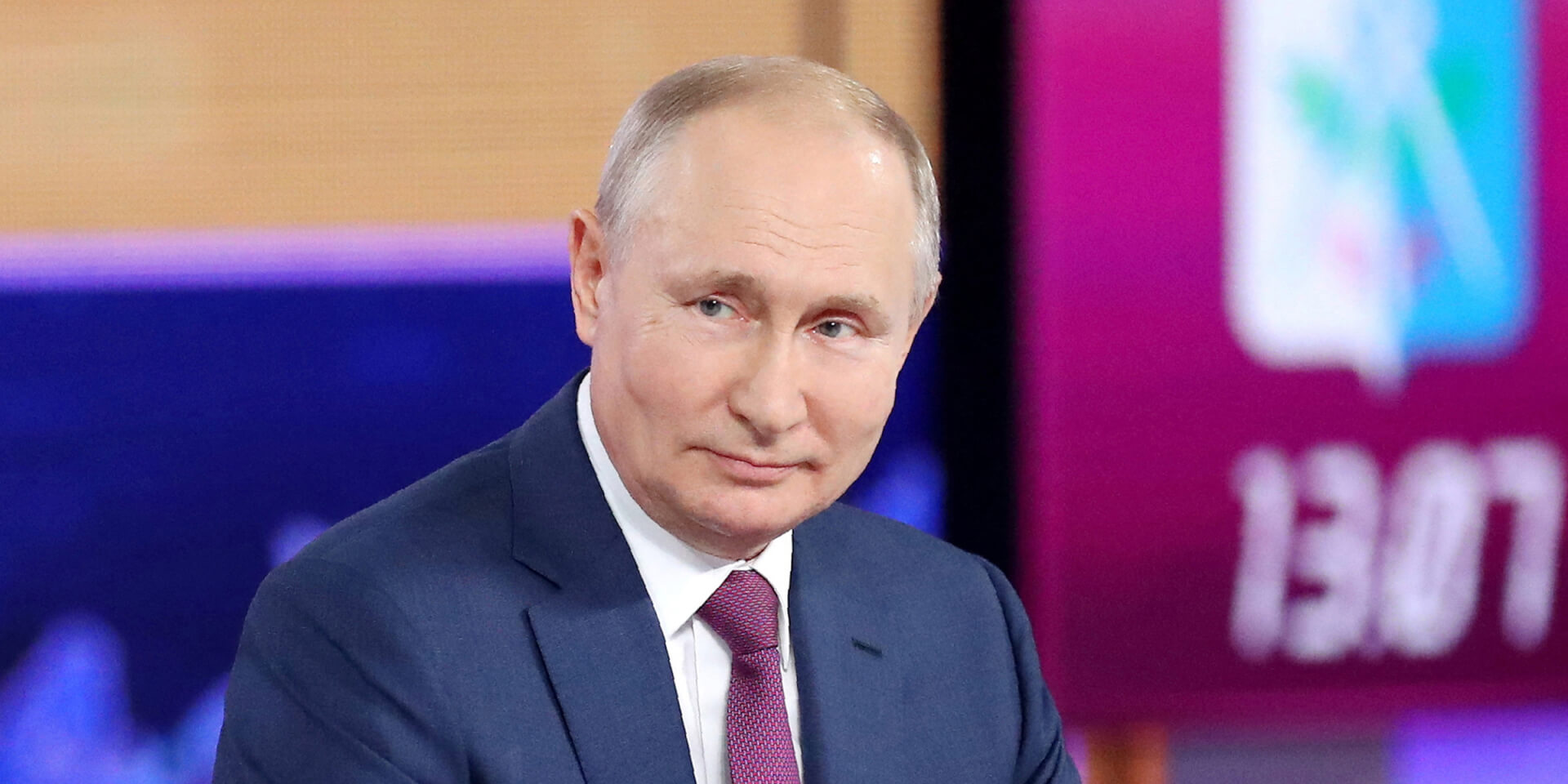France and Germany rejected Russian President Vladimir Putin’s renewed demand for all European Union (EU) countries purchasing gas from Russia to pay in rubles from April 1.
On Thursday, Putin once again threatened to cut all “unfriendly countries,” including EU member states, from Russian gas supply. During a televised government meeting, Putin said, “They must open ruble accounts in Russian banks. It is from these accounts that payments will be made for gas delivered starting tomorrow, April 1.”
“If such payments are not made, we will consider this a breach of obligations on the part of our buyers with all the ensuing consequences,” he added.
⚡President #Putin sets ruble-for-gas payment deadline – effective April 1.
— The Eurasianist ☦️ (@Russ_Warrior) March 31, 2022
The new law dictates that ‘unfriendly countries’ must open accounts in Russian banks.
Current gas contracts will be stopped if buyers do not meet new payment terms.#Russia pic.twitter.com/kxzYRZFFH2
Under the new system, all payments will be handled by Russia’s Gazprombank, a subsidiary of state-owned energy company Gazprom. Buyers will transfer payments into a Gazprombank account in foreign currency, which the bank will then convert into rubles and transfer into the buyer’s ruble account.
Commenting on the new payment method, Kremlin spokesperson Dmitry Peskov said, “Those who receive Russian gas... they just acquire rubles for the amount in [the] currency which is stipulated in the gas contract.”
However, Paris and Berlin have rejected Putin’s demands. Germany’s Vice-Chancellor and Minister for Economic Affairs and Climate Action, Robert Habeck, said that Europe will not be “blackmailed” by Putin, noting their preparedness for a possible halt of Russian gas. “With regard to the threat, demand or consideration - one doesn’t know what to call it anymore - to be made to pay in rubles, it is crucial for us that the contracts are respected. It is important for us not to give a signal that we will be blackmailed by Putin,” Habeck added.
Speaking separately at a joint conference with his Austrian counterpart Karl Nehammer on Thursday, German Chancellor Olaf Scholz said European countries would continue to pay for Russian gas imports in euros. Scholz also made this position clear during a phone call with Putin on Wednesday.
Also Read: Russia Shuts Down Gas Supply Via Yamal-Europe Pipeline
Similarly, French Minister of the Economy and Finance Bruno Le Maire rejected Putin’s demands and said that the country was preparing for a possible halt in gas deliveries from Russia. The United Kingdom (UK) has also refused to pay for Russian gas in rubles.
United States (US) State Department spokesperson Ned Price described Putin’s demand as a sign of Moscow’s economic and financial desperation following Western sanctions, which have crippled the Russian economy, pushing the ruble to record lows.
Nevertheless, the EU remains divided on whether to impose sanctions on Russia’s energy sector since it imports almost 40% of its gas requirements from Moscow, with some members favouring a total embargo and others arguing that this would be self-defeating.
Vladimir Putin just said that if gas is not purchased in rubles from tomorrow, Russia will consider it a default
— Samuel Ramani (@SamRamani2) March 31, 2022
France and Germany meanwhile insist that no ruble payments are possible, and Italy just said Putin is still open to dollar and euro payments
Lots of mixed messages
Meanwhile, Italian Prime Minister (PM) Mario Draghi suggested that as per his understanding of his conversation with Putin following the latest announcement, EU countries can continue paying in euros. “What I understood, but I may be wrong, is that the conversion of the payment... is an internal matter of the Russian Federation,” he added.
Draghi’s statement is a perfect illustration of the confusion caused by Putin’s announcement, due in large part to the inconsistent messaging by Moscow.
Just one day before Putin’s new warning on Thursday, Kremlin spokesperson Dmitry Peskov indicated that Russia had backtracked from its earlier demand after it was rejected by the G7 and Germany invoked the first level of a three-phased gas emergency plan. “As we discussed before, payments and delivery is a time-consuming process,” Peskov said, adding, “This does not mean that tomorrow’s delivery should be paid [in rubles]. From a technological point of view, this is a more prolonged process.”
The demand for gas import payments in rubles, rather than euros or dollars, was first announced by Putin last week. He even asked the Russian Central Bank to design an initiative that allows buyers to acquire rubles from Russia.
The governor of #Russia's central bank, Elvira Nabiullina, is closing in on her greatest victory so far: Due to far-reaching market interventions and strong oil+gas revenues, the #ruble may soon look stronger than before the war. This moment will be widely celebrated in Moscow. pic.twitter.com/IwVGiyGLzM
— Janis Kluge (@jakluge) March 29, 2022
Moscow’s threat to cut gas supply to Europe is not unprecedented. It has previously warned of shutting down gas supply to Europe via Nord Stream 1. Furthermore, after the G7 rejected Putin’s demand for ruble payments, it briefly cut all supply via the Yamal pipeline.

